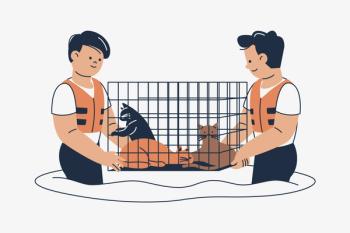
The war on pugs (and other brachycephalic breeds)
The British Veterinary Association calls out the industry for helping in buying and breeding "flat-nosed" dogs.
shutterstock/ponpimon sirivongsa115Veterinarians have seen firsthand the effects on dog health and welfare linked to the rise in ownership of brachycephalic breeds, says the British Veterinary Association (BVA). Representatives of the organization, along with the British Small Animal Veterinary Association (BSAVA), now say they want veterinarians, breeders, breed societies, the pet-buying public and others to take action to combat the health problems that are associated with brachycephalic breeds.
“As part of their pre-purchase research, prospective dog owners should consider the health harms perpetuated in dogs by purchasing brachycephalic breeds and choose a healthier alternative breed, or crossbreed, instead, and local veterinary practices are ideally placed to give this advice,” says Sean Wensley, BVSc, MSc, Grad DMS, MRCVS, president of the British Veterinary Association, in
The release cites
The BVA release cites common health issues for brachycephalic breeds, including severe lifelong breathing issues, corneal ulcers, skin disease, a screw-shaped tail linked to painful spine abnormalities and the inability to give birth naturally.
“Vets have a duty to always prioritize the best interest of their pet patients, which, for affected animals, can involve performing surgical procedures to correct conformational disorders,” says Wensley in the release. “They have a concurrent duty to be a part of initiatives that aim to address the health and welfare of a breed beyond the individual affected animal.”
Newsletter
From exam room tips to practice management insights, get trusted veterinary news delivered straight to your inbox—subscribe to dvm360.




